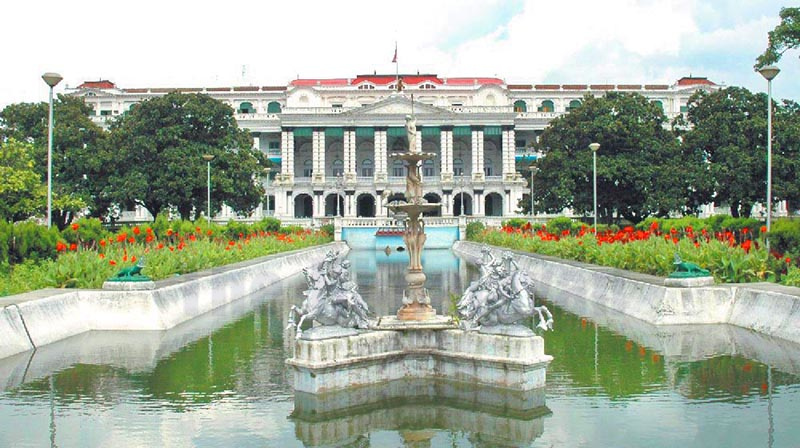Rules to regulate medical colleges issued
KATHMANDU, SEPTEMBER 3
The Government of Nepal has issued National Medical Education Rules-2020, enabling educational institutions to establish and operate medical colleges.
As per the rules, any educational institution wishing to obtain a Letter of Intent may submit an application to the Medical Council, along with supporting documents. “The executive committee of the council may carry out on-site inspection to ensure an applicant meets the standards and criteria necessary for the establishment and operation of a medical college.
If the applicant is found to have met the prescribed standards, the committee shall recommend to the commission for issuance of LoI,” reads the rule.
A LoI shall remain valid for five years from the date of issuance. If the proposed medical college is not established and operated within that period, the LoI shall be automatically revoked.
Any educational institution obtaining LoI shall have to get it renewed within mid-July of each year. It requires such an educational institution to submit an application in the prescribed format to the commission for affiliation of a medical college with the concerned university.
“If the affiliation of any medical college is revoked as part of stringent legal action against the institution in the midway, for violating prevailing laws and rules, the concerned medical college shall be responsible to make arrangements for completion of medical course of the students and bear all their financial liabilities,” states the rule.
According to the rules, the commission shall determine the number of seats to be allocated by the universities, academies and other educational institutions, which conduct programmes related to medical education, for each academic year prior to conduction of integrated entrance test. “The committee of the council shall form an expert team for the determination of the number of seats,” read the rule.
According to the rules, public educational institutions shall have to allocate 75 per cent of seats for scholarship as per and set aside only onethird of the remaining 25 per cent of seats for foreign students. The private medical colleges, which provide maximum one-third of total seats to the Government of Nepal as scholarship, may allocate up to 50 per cent of seats for foreign students.
The commission shall conduct an integrated entrance test for the students wishing to get enrolled in bachelor’s level, master’s level and above for medical education. The rules stipulate a provision of a four-member medical education integrated entrance examination committee, headed by director at Directorate of Examinations for operation and administration of the test.
Students for master’s level shall be selected on the basis of 50 per cent from open competition, 40 per cent from amongst the persons working in the government service and 10 per cent from foreigners. Likewise, 45 per cent of the seats shall be allocated to women, Dalits, indigenous nationalities including Khash Arya, Madhesi, Tharu, Muslim, persons from backward regions, differently-abled persons and persons from martyrs’ families, families with disappeared persons and conflict victims as scholarship on merit basis for bachelor’s level programme.
The rules have made a provision for determination of fees for medical education of all levels and programmes by the commission.
Vice-chancellor, registrar, rector, dean, deputy dean and managers of universities and academies have been barred from making investment in medical colleges to avoid conflict of interest. The rules have also set down the code of ethics to be maintained by the medical colleges and their officials, teachers and staffers.
A version of this article appears in e-paper on September 4, 2020, of The Himalayan Times.






